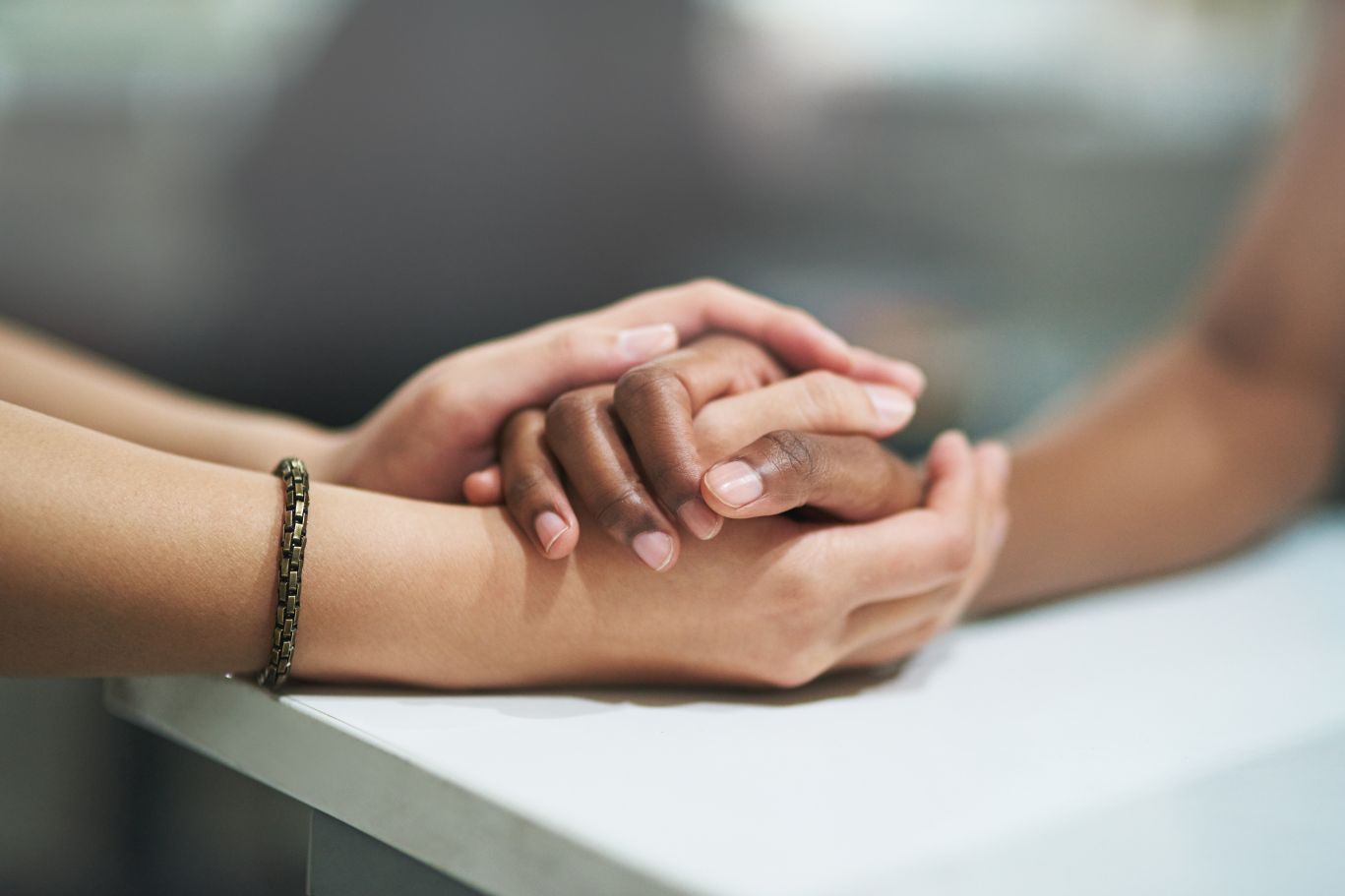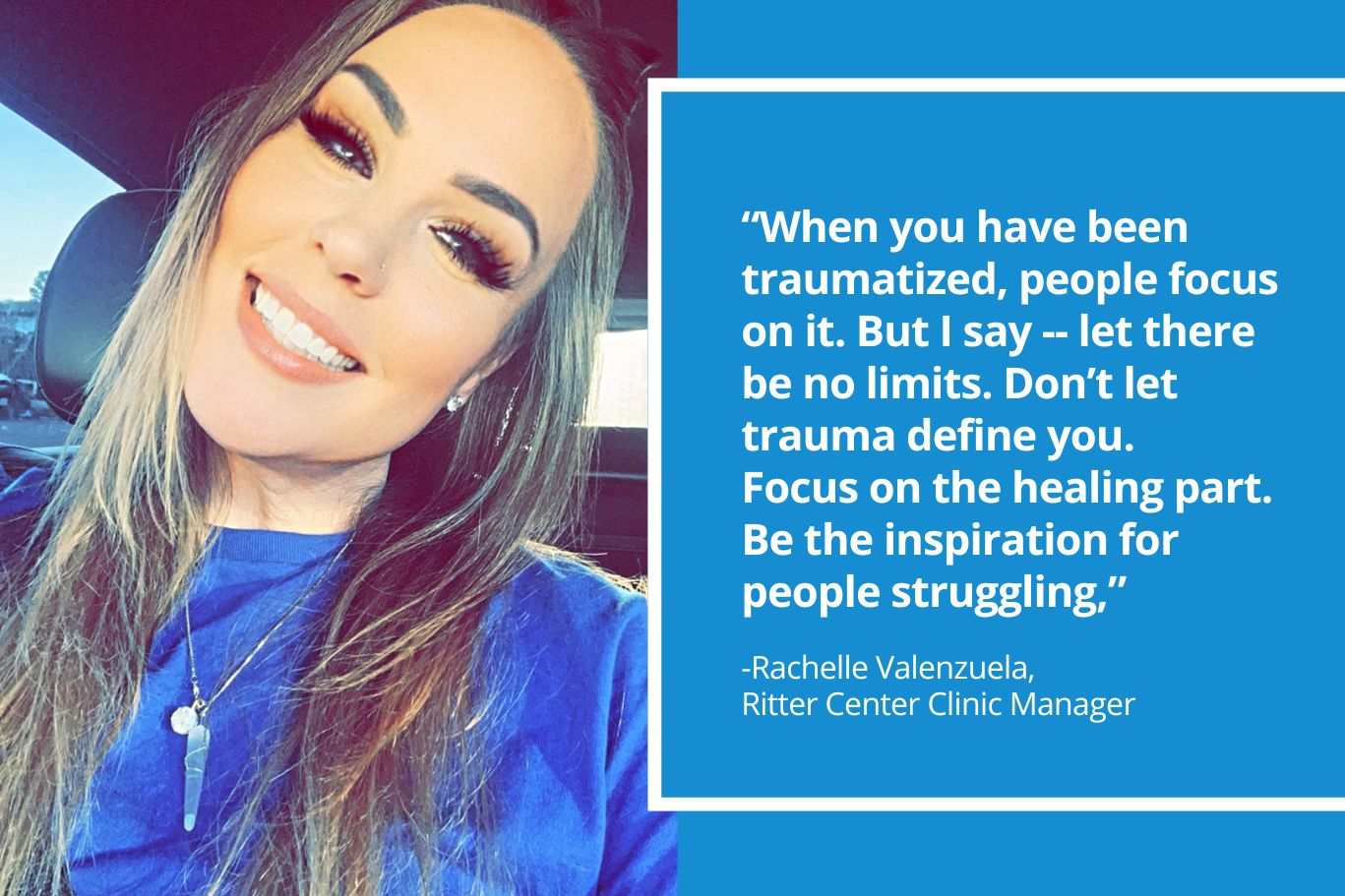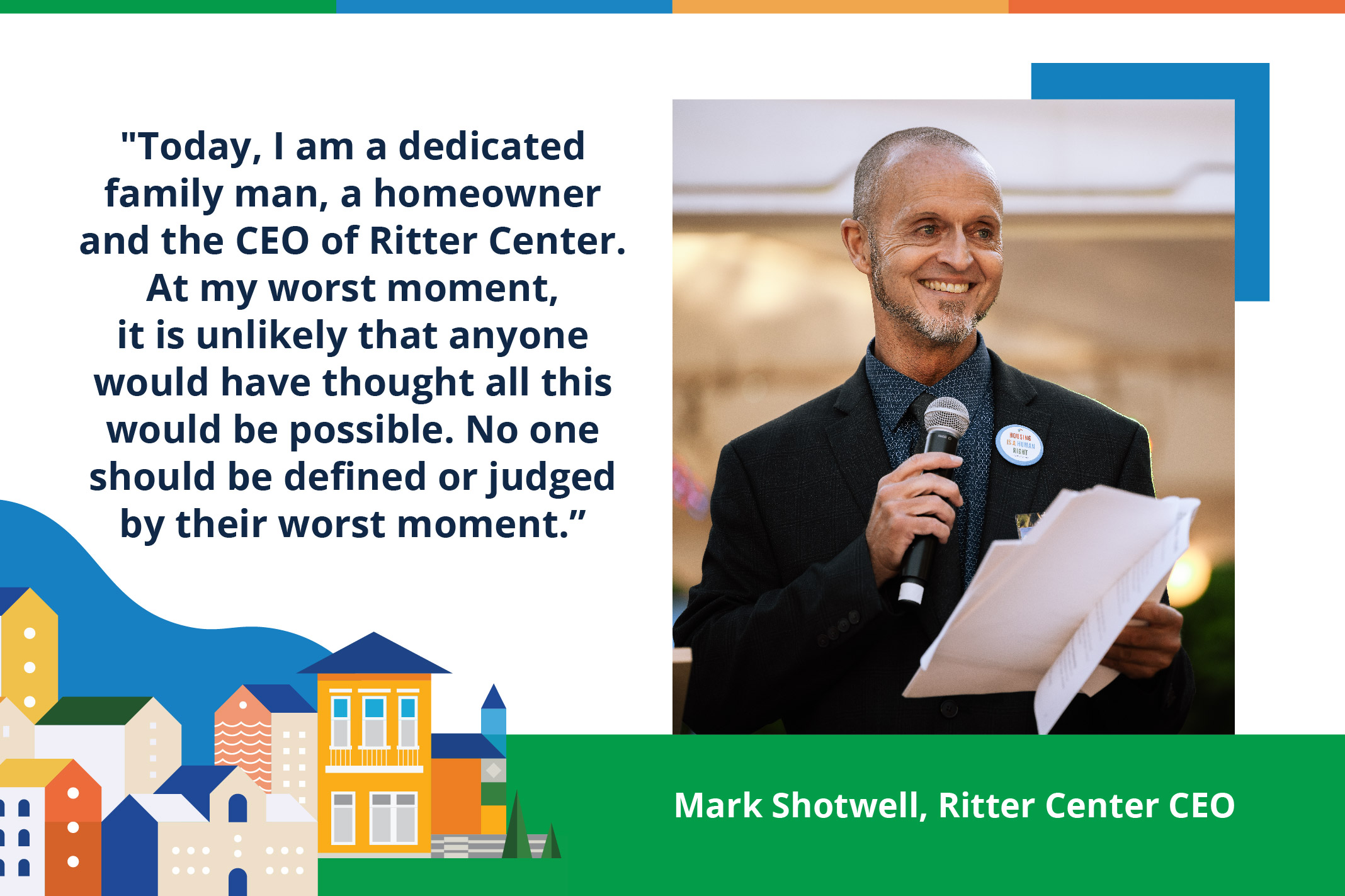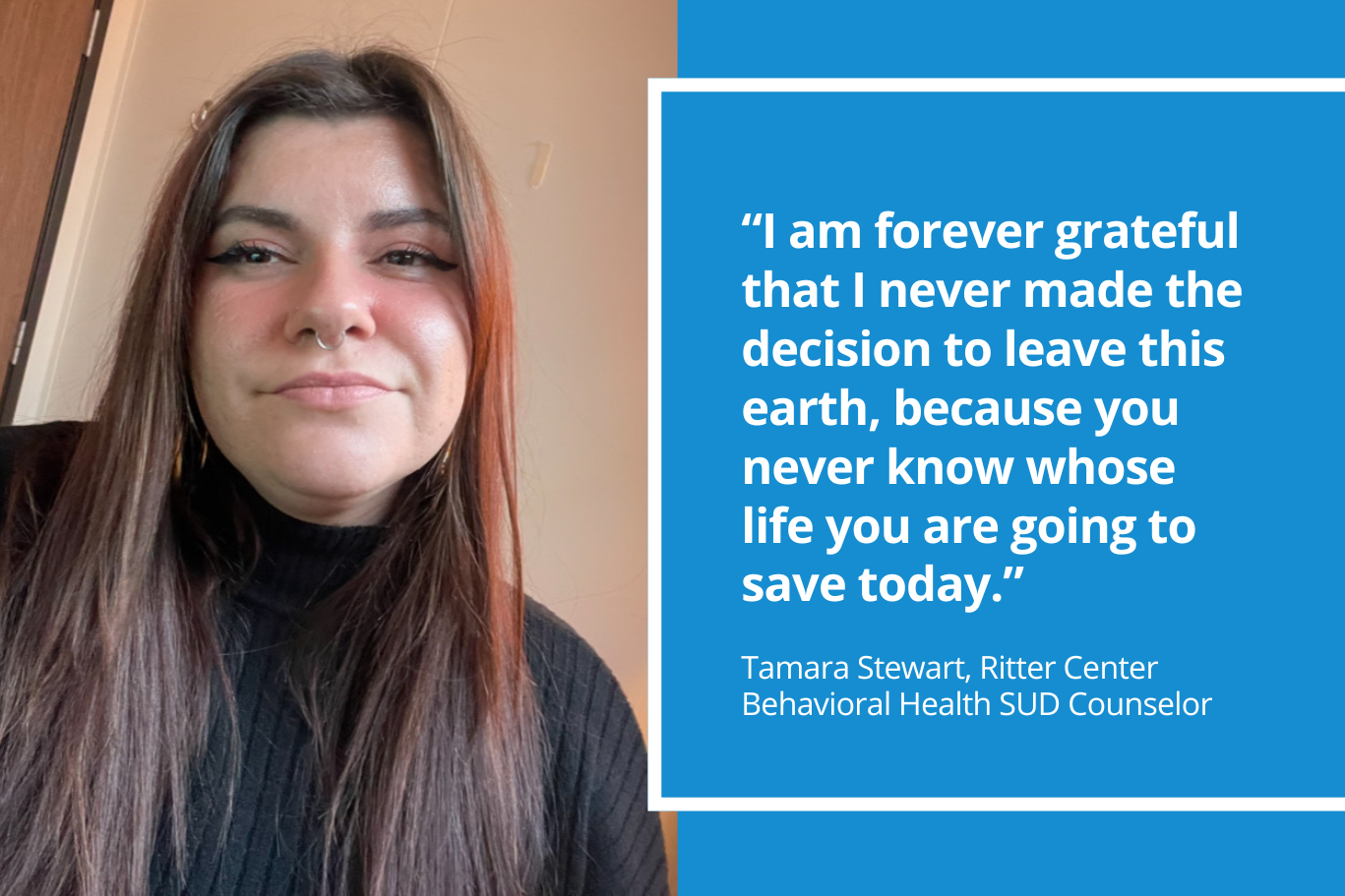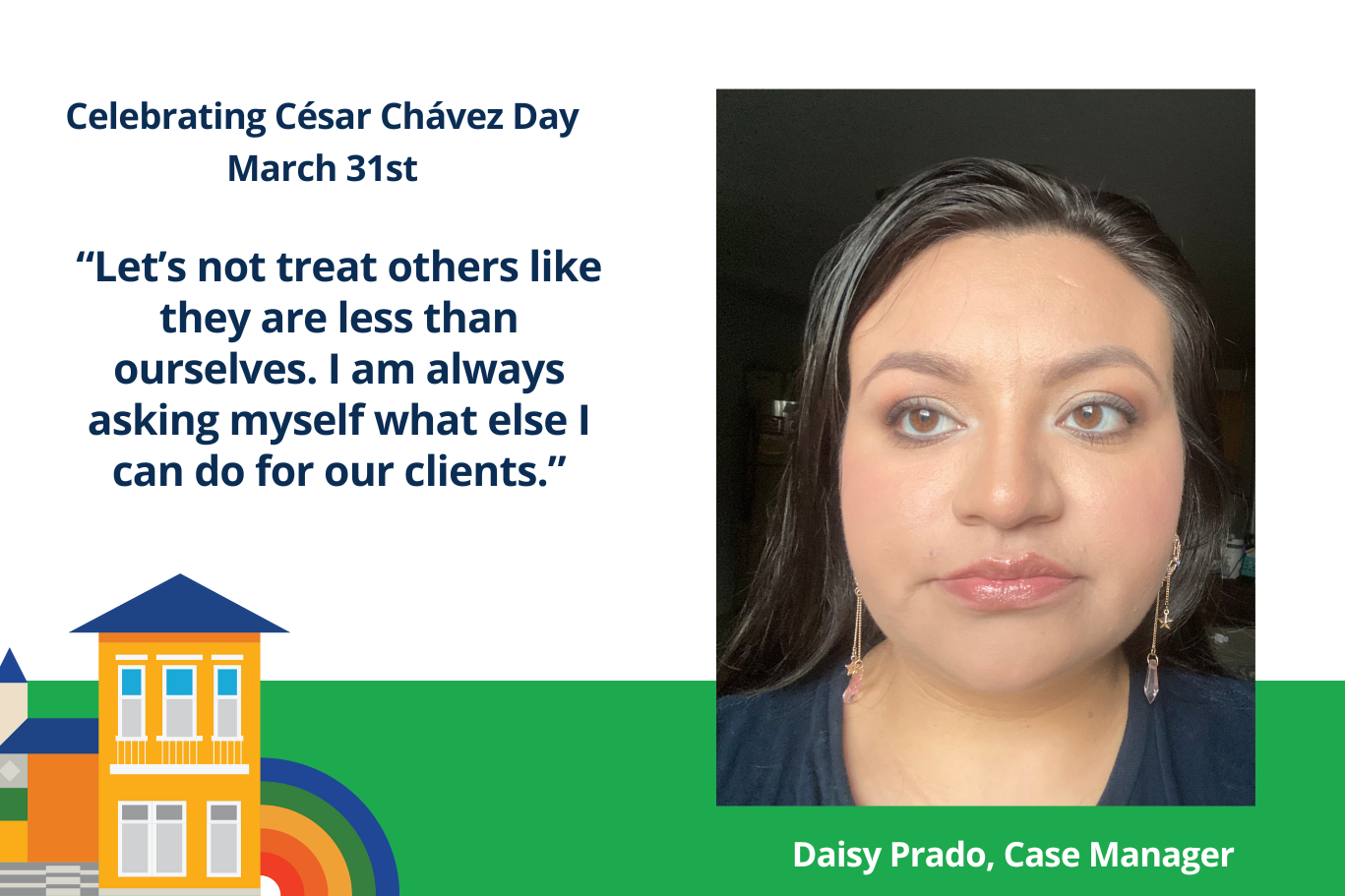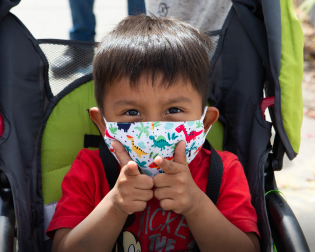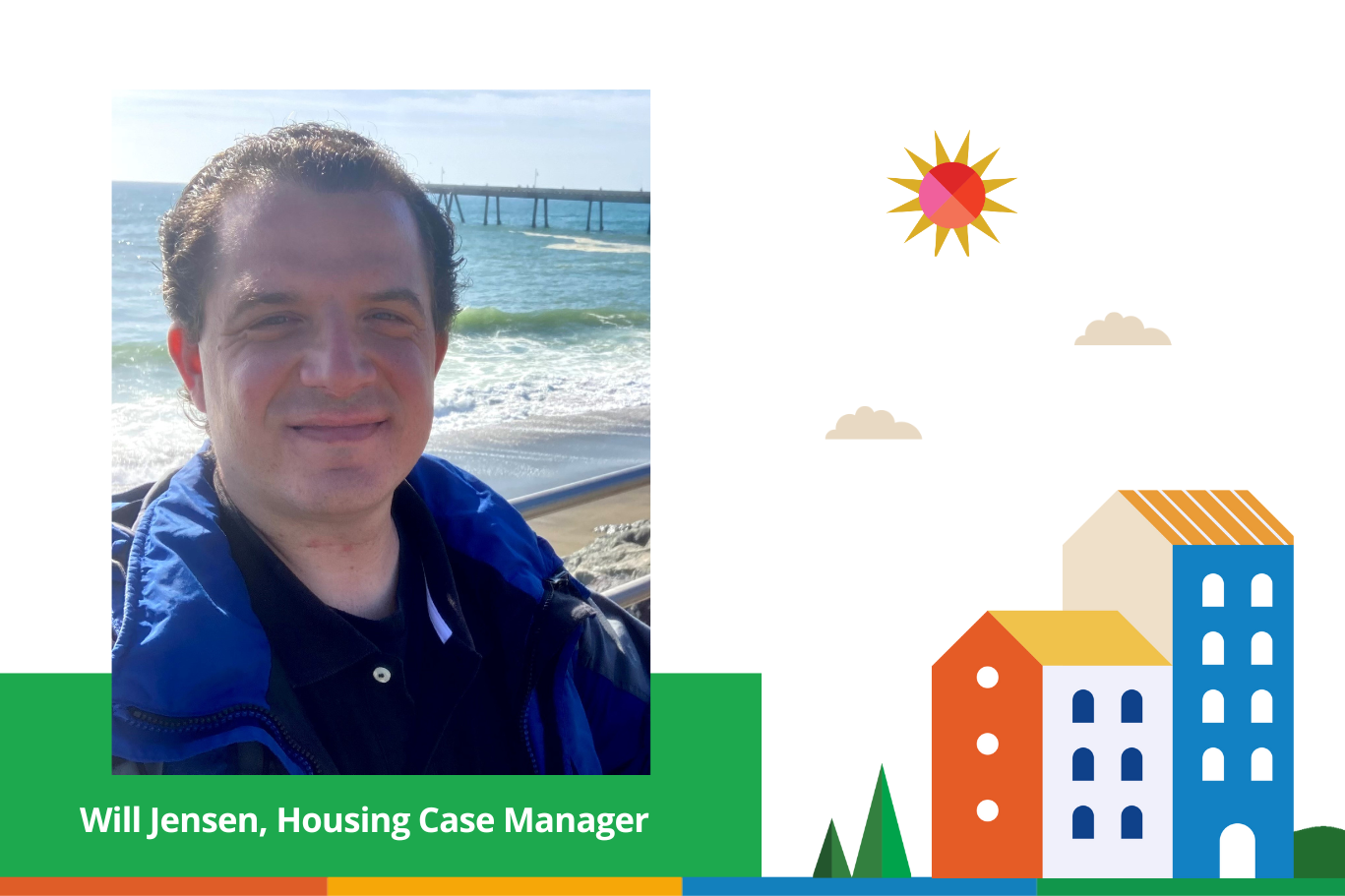
Interview with Ritter Center Housing Case Manager Will Jensen
“People arrive at Ritter Center in very vulnerable conditions: not enough food, no roof over their head, and missing the very basics. I have a unique and special opportunity to help people looking for services and tangible resources. It is important that they are heard, listened to, seen and validated. It is equally important that they are not judged,” said Will Jensen, Ritter Center Housing Case Manager.
Will Jensen will do anything to help people – both as part of his job and as his personal credo. As someone who dabbles in and studies Buddhist philosophy, he is a strong believer that all individuals are equal in the most profound sense of the word.
He underscored how Ritter Center clients already face questions and judgment in our society. Is it their fault? Could they have done better? “Can we meet people where they are right now with empathy and compassion?” asked Will. “None of us are perfect. We all have good days and bad days. I certainly don’t have all the answers, but I greatly value that I can try to help in the way that most benefits them at this point in time. Maybe it is moving to a new place, or perhaps it is accessing a new service. Ultimately, the most fulfilling part is being present and vulnerable in an authentic connection with people.”
Will noted that so many aspects of our culture don’t promote this type of connection. “We are busy fulfilling needs or feeling pressure to appear to be capable of holding it together. But this translates sometimes into ignoring our humanity and what we most need. When people can be honest, it cuts through the external self, straight through to the core of what it means to be a person. It is this conscience and inherent morals that lends itself to caring and healing for everyone involved, myself included. This benefit ripples outward for all of us,” he urged.
Will recognizes that people aren’t born closed minded and judgmental, but sometimes society can shape different beliefs relating to people experiencing homelessness and poverty. “My own experiences with mental illness meant I had to utilize different social support networks myself. That window gave me small glimpses of what doesn’t work. I saw firsthand the shortcomings of the systems that can perpetuate harms. I use that experience to guide my work now, and to be the kind of person that I would have liked myself to have at that point in my life,” described Will. “Physical and mental health are linked, and I constantly evaluate what I’m doing to assess what’s working and what’s not.”
Will pointed out how women face specific issues and although monthly themes and annual holidays around women’s rights and women’s history are important and serve as moments to bring attention to those topics, it is something we can strive for every day. “We should always be thinking about these issues. And not just for women, but for people of color, people with disabilities, those from the LGBTQ+ community, people struggling with poverty, and for all of the different identities our clients represent which create extra barriers in receiving quality health care. In order to be good providers, we need to think about whether there is a certain population that we are not serving. Is there an unintended harm to their identity or culture due to our individual or collective ignorance?” said Will. “That’s why it is essential to get feedback from our clients given their very different backgrounds to give them the opportunity to be a part of the conversation.”
Cultural humility and competence mean we are likely to have a greater understanding of different aspects of a culture related to the people we might be serving. “There are so many experiences and cultures here, and cultural humility is less about storing data in your head and more about being open to interactions and aware of unconscious bias,” said Will.
He pointed to Dr. Melanie Tervalon, a pediatrician at Children’s Hospital in Oakland, as an example. A renowned health educator, she pioneered the concept of cultural humility in order to transform the medical profession. “She helped to address the inequities in health care by working with the practitioners themselves. I am inspired by her to be present and mindful of who we are serving. Her work guides me and keeps me striving to do more. These inequities are baked into our society, systems and cultures. If we don’t think about them, they will just keep happening. So we must pause to ask: what is the role we play in it? How do we do something different? Every interaction makes such an impact,” said Will.
Will knows he can make referrals and suggestions that may or may not help, but that ultimately, it is the connection that matters. He works to make sure that he is really seeing and listening, making sure their voices are heard.
